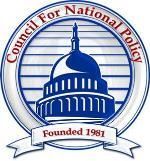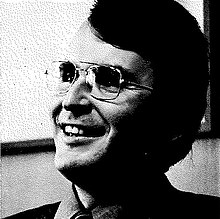
Intelligent design (ID) is a pseudoscientific argument for the existence of God,presented by its proponents as "an evidence-based scientific theory about life's origins". Proponents claim that "certain features of the universe and of living things are best explained by an intelligent cause,not an undirected process such as natural selection." ID is a form of creationism that lacks empirical support and offers no testable or tenable hypotheses,and is therefore not science. The leading proponents of ID are associated with the Discovery Institute,a Christian,politically conservative think tank based in the United States.

The Discovery Institute (DI) is a politically conservative non-profit think tank based in Seattle,Washington,that advocates the pseudoscientific concept of intelligent design (ID). It was founded in 1990 as a non-profit offshoot of the Hudson Institute.
The Heritage Foundation is an American conservative think tank based in Washington,D.C.,primarily geared towards public policy. The foundation took a leading role in the conservative movement during the presidency of Ronald Reagan,whose policies were taken from Heritage's policy study Mandate for Leadership.
Compassionate conservatism is an American political philosophy that stresses using conservative techniques and concepts in order to improve the general welfare of society. The philosophy supports the implementation of policies designed to help the disadvantaged and alleviate poverty through the free market,envisaging a triangular relationship between government,charities and faith-based organizations. The term entered more mainstream parlance between 2001–2009,during the administration of US President George W. Bush. He used the term often to describe his personal views and embody some parts of his administration's agenda and policy approach.

The Center for Science and Culture (CSC),formerly known as the Center for the Renewal of Science and Culture (CRSC),is part of the Discovery Institute (DI),a conservative Christian think tank in the United States. The CSC lobbies for the inclusion of creationism in the form of intelligent design (ID) in public-school science curricula as an explanation for the origins of life and the universe while trying to cast doubt on the theory of evolution. These positions have been rejected by the scientific community,which identifies intelligent design as pseudoscientific neo-creationism,whereas the theory of evolution is overwhelmingly accepted as a matter of scientific consensus.

The intelligent design movement is a neo-creationist religious campaign for broad social,academic and political change to promote and support the pseudoscientific idea of intelligent design (ID),which asserts that "certain features of the universe and of living things are best explained by an intelligent cause,not an undirected process such as natural selection." Its chief activities are a campaign to promote public awareness of this concept,the lobbying of policymakers to include its teaching in high school science classes,and legal action,either to defend such teaching or to remove barriers otherwise preventing it. The movement arose out of the creation science movement in the United States,and is driven by a small group of proponents.

George Franklin Gilder is an American investor,author,economist,and co-founder of the Discovery Institute. His 1981 international bestseller,Wealth and Poverty,advanced a case for supply-side economics and capitalism during the early months of the Reagan administration. He is the chairman of George Gilder Fund Management,LLC.

The Wedge Strategy is a creationist political and social action plan authored by the Discovery Institute,the hub of the pseudoscientific intelligent design movement. The strategy was put forth in a Discovery Institute manifesto known as the Wedge Document. Its goal is to change American culture by shaping public policy to reflect politically conservative fundamentalist evangelical Protestant values. The wedge metaphor is attributed to Phillip E. Johnson and depicts a metal wedge splitting a log.

The Council for National Policy (CNP) is an umbrella organization and networking group for conservative and Republican activists in the United States. It was launched in 1981 during the Reagan administration by Tim LaHaye and other right-wing conservative Christians,to "bring more focus and force to conservative advocacy". The membership list for September 2020 was later leaked,showing that members included prominent Republicans and conservatives,wealthy entrepreneurs,and media proprietors,together with anti-abortion and anti-Islamic extremists. Members are instructed not to reveal their membership,or even name the group.

Howard Fieldstad Ahmanson Jr. is an American philanthropist and writer whose public activities focus on deepening awareness and fostering better policy regarding issues including housing affordability,land use,the abuse of eminent domain,and the rule of law as a fundamental safeguard against the abuse of poor and those without influence. He is the son of Howard F. Ahmanson Sr.,the founder of Home Savings Bank,a fortune in which Ahmanson Jr. is an heir. Ahmanson Jr. is a multi-millionaire and financier of many causes relating to culture,spirituality,humanities and politics.

"Teach the Controversy" is a campaign,conducted by the Discovery Institute,to promote the pseudoscientific principle of intelligent design,a variant of traditional creationism,while attempting to discredit the teaching of evolution in United States public high school science courses. Scientific organizations,including the American Association for the Advancement of Science,note the institute to have manufactured a controversy,where there exists none.
Bruce Reeves Bartlett is an American historian and author. He served as a domestic policy adviser to Ronald Reagan and as a Treasury official under George H. W. Bush. Bartlett also writes for the New York Times Economix blog.

The intelligent design movement has conducted an organized campaign largely in the United States that promotes a pseudoscientific,neo-creationist religious agenda calling for broad social,academic and political changes centering on intelligent design.

The Discovery Institute has conducted a series of related public relations campaigns which seek to promote intelligent design while attempting to discredit evolutionary biology,which the Institute terms "Darwinism." The Discovery Institute promotes the pseudoscientific intelligent design movement and is represented by Creative Response Concepts,a public relations firm.

John G. West is a senior fellow at the Seattle-based Discovery Institute (DI),and associate director and vice president for public policy and legal affairs of its Center for Science and Culture (CSC),which serves as the main hub of the pseudoscientific Intelligent design movement.
Movement conservatism is a term used by political analysts to describe conservatives in the United States since the mid-20th century and the New Right. According to George H. Nash (2009) the movement comprises a coalition of five distinct impulses. From the mid-1930s to the 1960s,libertarians,traditionalists,and anti-communists made up this coalition,with the goal of fighting the liberals' New Deal. In the 1970s,two more impulses were added with the addition of neoconservatives and the religious right.

United States President Barack Obama,a member of the Democratic Party,was endorsed or supported by some members of the Republican Party and by some political figures holding conservative views in the 2008 election. Although the vast majority of Obama's support came from liberal constituencies,some conservatives identified in him shared priorities or other positive attributes. As in any election,voters can and sometimes do cross party lines to vote for the other party's nominee. Republican and conservative Obama supporters were often referred to as "Obama Republicans","Obamacans" or "Obamacons".

The Reagan Era or Age of Reagan is a periodization of recent American history used by historians and political observers to emphasize that the conservative "Reagan Revolution" led by President Ronald Reagan in domestic and foreign policy had a lasting impact. It overlaps with what political scientists call the Sixth Party System. Definitions of the Reagan Era universally include the 1980s,while more extensive definitions may also include the late 1970s,the 1990s,the 2000s,the 2010s,and even the 2020s. In his 2008 book,The Age of Reagan:A History,1974–2008,historian and journalist Sean Wilentz argues that Reagan dominated this stretch of American history in the same way that Franklin D. Roosevelt and his New Deal legacy dominated the four decades that preceded it.

This timeline of modern American conservatism lists important events,developments and occurrences which have significantly affected conservatism in the United States. With the decline of the conservative wing of the Democratic Party after 1960,the movement is most closely associated with the Republican Party (GOP). Economic conservatives favor less government regulation,lower taxes and weaker labor unions while social conservatives focus on moral issues and neoconservatives focus on democracy worldwide. Conservatives generally distrust the United Nations and Europe and apart from the libertarian wing favor a strong military and give enthusiastic support to Israel.
Except briefly in the 1860s–1870s,there has never been a national political party in the United States called the Conservative Party. All major American political parties support republicanism and the basic classical liberal ideals on which the country was founded in 1776,emphasizing liberty,the pursuit of happiness,the rule of law,the consent of the governed,opposition to aristocracy and fear of corruption,coupled with equal rights before the law. Political divisions inside the United States often seemed minor or trivial to Europeans,where the divide between the Left and the Right led to violent political polarization,starting with the French Revolution.







